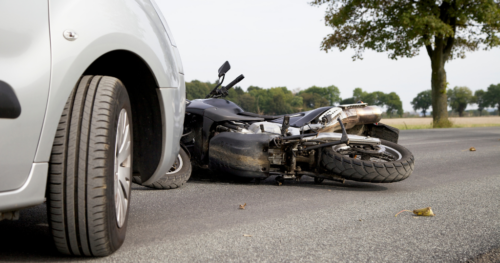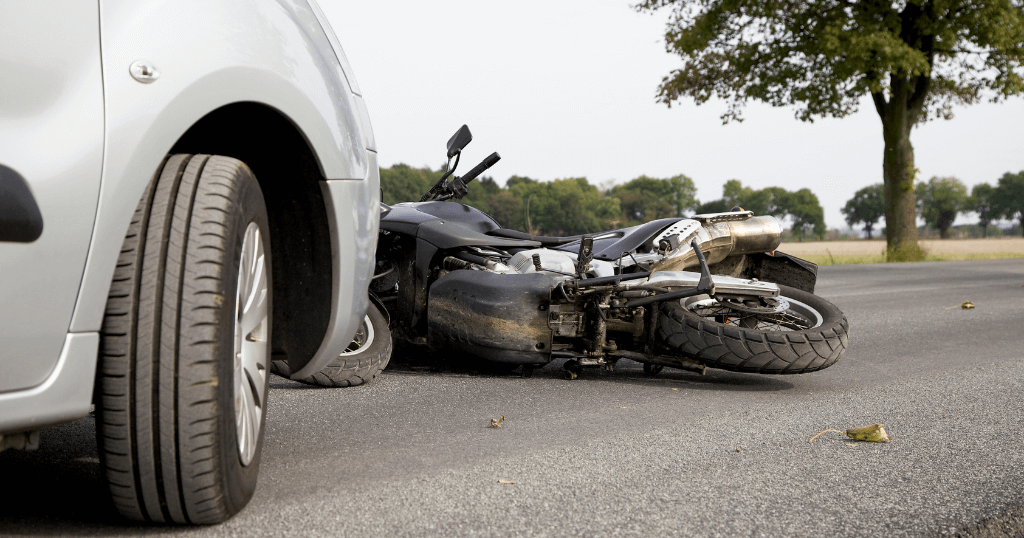
Motorcycle riders often face an unjust bias when blame is assigned for accidents in which they are involved. Insurance companies, the police, and even judges and juries often act out of a deeply ingrained bias that affects every stage of the injury claim process, from the initial accident scene to the courtroom.
Despite mounting evidence that disproves common motorcycle stereotypes of recklessness and lawlessness, motorcycle riders struggle for fair compensation after collisions. If you suffered injuries in a motorcycle accident, a Miami motorcycle accident lawyer can help you fight these biases and seek fair compensation.
Unjust Motorcycle Bias
The bias against motorcycle riders is a deeply entrenched and unjust societal prejudice that has persisted for decades. Rooted in historical misrepresentations and reinforced by media portrayals, this bias leads to unfair perceptions of motorcyclists and impacts how they are treated in the aftermath of accidents.
Historically, early media portrayals depicted motorcycle riders as rebels, outlaws, or thrill-seekers. For instance, the 1953 film The Wild One followed a gang of rebel bikers, and 1969’s Easy Rider linked the image of counterculture with the motorcycle community. These portrayals fueled negative stereotypes that continue to influence public opinion today.
The concerns associated with early motorcycles, which lacked modern safety features, contributed to the perception that motorcycling was inherently risky. These early impressions laid the foundation for a deeply ingrained bias against motorcycle riders.
Motorcycle Accident Statistics
Due to bias, fault is often attributed to the motorcycle rider in collisions between motorcycles and other vehicles. However, National Highway Traffic Safety Administration (NHTSA) data shows a more complex picture:
- Fatality rates—In 2021, the NHTSA found that per vehicle mile traveled, motorcyclists were more likely to die in a traffic crash. Motorcycle drivers face a 24 times higher fatality risk than passenger vehicle occupants.
- Percent of traffic fatalities—5,579 motorcyclists died in traffic collisions in 2020. This number made up 14% of all traffic crash fatalities that year and was the highest on record since data began being collected in 1975.
- Alcohol use—Motorcyclists are often assumed to be under the influence after crashes, but the number of inebriated riders is not much higher than that for passenger car drivers. 27% of alcohol-involved crashes involved motorcycles, while a comparative 23% involved passenger cars.
- Increased danger during simple maneuvers—Motorcyclists are at an increased risk due to their vehicle’s size and open design. Even simple maneuvers like driving through an intersection can be deadly. This makes many motorcyclists more cautious when driving.
- Right-of-Way—The NHTSA reports that 42% of fatal motorcycle crashes involving another vehicle happened when the passenger car turned left into a motorcycle moving straight through an intersection, ignoring the motorcycle rider’s right of way.
- Helmet laws—Many states, including Florida, don’t require adult riders to wear helmets on a motorcycle if they are adequately insured. Although many riders choose to wear them when on the road, the image of reckless motorcyclists persists. This can create an unfair bias when an injury collision occurs — if the state does not require a helmet, the rider is not breaking any rules by not putting one on.
How an Attorney Can Help You Fight Unfair Bias After a Motorcycle Collision
Being involved in a motorcycle collision can be traumatic, and you may face societal biases when seeking compensation even if another driver causes your injuries. An experienced attorney from Aigen Injury Law can challenge these biases and help you receive a just settlement.
- Evidence gathering—A skilled attorney can gather evidence including the police report, photographs, and security camera or CCTV footage to support your claim. For instance, a nearby store’s surveillance camera might capture a different angle of the accident that clearly shows you were not driving recklessly when the accident occurred.
- Expert testimonies—An attorney can enlist traffic safety experts or motorcycle instructors to testify about the defensive driving techniques motorcyclists are taught. For example, an expert might explain how a swerving action, often perceived as reckless, can be a trained evasive maneuver to avoid a sudden obstacle.
- Challenging stereotypes—Using data from sources like the National Highway Traffic Safety Administration, your attorney can demonstrate that not all motorcycle accidents are the rider’s fault and apply it to your situation. For instance, they can highlight how many accidents are caused by car drivers failing to detect motorcyclists in time and provide evidence proving this also occurred in your crash.
- Negotiation skills—An experienced attorney knows the tactics insurance companies use to downplay claims based on bias. By presenting strong evidence and challenging these biases head-on, your attorney can counteract an insurance adjuster’s claims that are not based on concrete evidence.
- Legal knowledge—Our attorneys are skilled in Florida traffic laws and can pinpoint violations by other parties involved in the collision. If a car driver made an illegal turn that led to the crash, your attorney can present this breach of law as the primary negligent act that led to the crash.
Get Fair Representation as a Motorcycle Rider
As a motorcycle rider, you need fair legal representation after a motorcycle crash due to another driver’s negligence. Our Miami motorcycle accident lawyers understand motorcycle riders’ challenges in obtaining full compensation for their injuries.
We can use evidence such as witness testimony, expert analysis, and accurate crash-site data to prove the other driver acted negligently and is liable for your injuries. Contact us today to schedule a free consultation so we can begin investigating the accident and help you start your claim.
